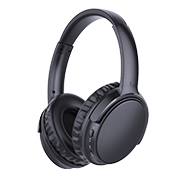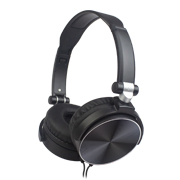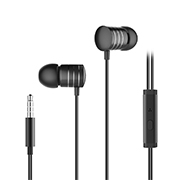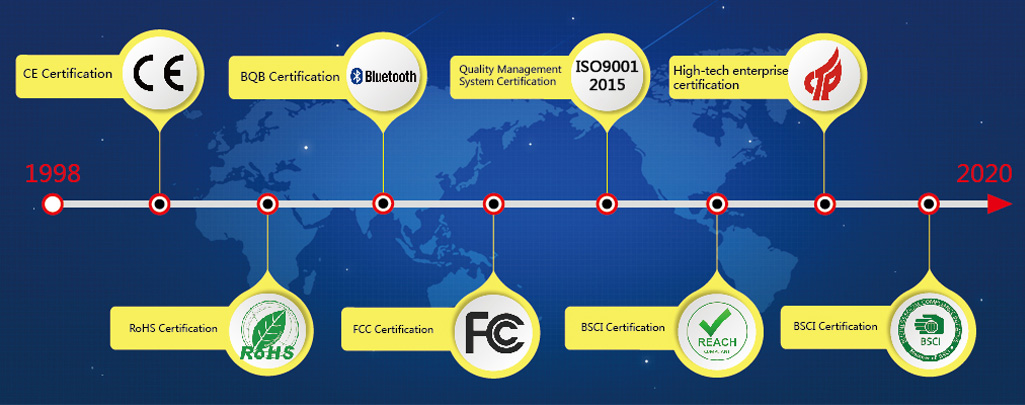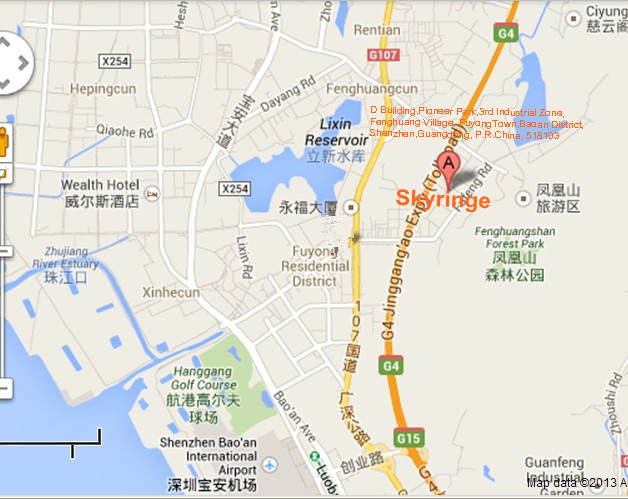
- factory address
D Building,Pioneer Park,3rd Industrial Zone Fenghuang Village, Fuyong Town,Baoan DistrictShenzhen,Guangdong,China
news
Trump's new attack on the Chinese economy
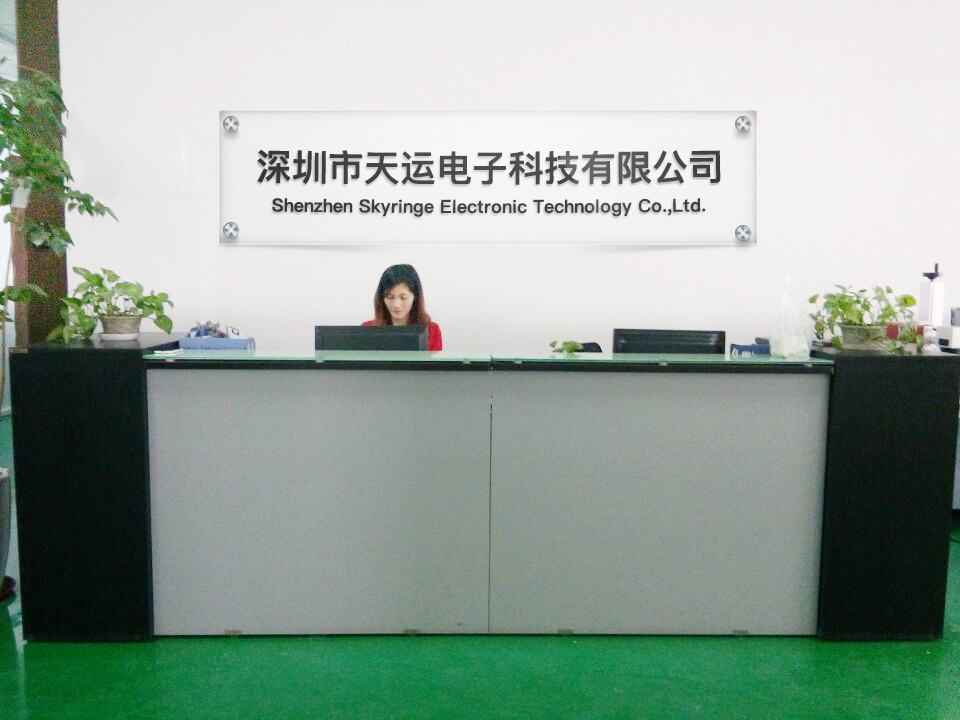
President Donald Trump is pursuing an unconventional and
controversial strategy for pressuring China to open up its doors wider
to American business. It’s a sign that the Trump administration is still
willing to risk a trade war with China despite its ouster of strategist
Steve Bannon, the most prominent economic nationalist in the
administration.
The move involves launching an investigation into whether China is
violating international trade law by systematically stealing
intellectual property. China forces many foreign businesses to hand over
their most prized technology in exchange for access to their market.
To push back against the practice, the White House is using Section
301 of the Trade Act of 1974. It’s a statute that the US uses to force
countries to open up their markets when they restrict access to American
exporters. It allows the US to unilaterally impose tariffs (taxes on
incoming goods) on a foreign country’s exports or restrict its access to
the US market.
Washington has used it with great success in the past, prying open,
for example, Japan’s impenetrable semiconductor market in the 1980s.
But the policy has barely been used in decades and is widely considered
to be an unfair practice since the creation of the World Trade
Organization in 1995. If the new investigation, which could take up to a
year, results in economic punishments against China, it will cause
uproar in the global trade arena.
Beijing has already promised to retaliate for any sanctions in the runup to the announcement.
“There is no future and no winner in a trade war, and both sides
will be the losers,” Hua Chunying, a Chinese foreign ministry
spokesperson, told reporters last week.
US Trade Representative Robert Lighthizer announced the new move on
Friday, the same day that Bannon was forced to leave his job. That’s a
clear indication that Bannon’s views about China will remain a potent
force in the White House even with him back at Breitbart News.
During a blockbuster interview with the American Prospect on
Wednesday, Bannon said the US should take decisive action to halt in
China’s rapid rise, which he sees as a direct, almost existential threat
to the US. He specifically cited Section 301 as one of best weapons
that the US had.
“We’re going to run the tables on these guys. We’ve come to the
conclusion that they’re in an economic war and they’re crushing us,”
Bannon said during the interview with the left-leaning magazine’s
editor, Robert Kuttner.
“To me the economic war with China is everything. And we have to be maniacally focused on that,” he said.
There are still some China trade hawks in the administration who
can keep Bannon’s vision alive, including Lighthizer and White House
National Trade Council director Peter Navarro. Trump himself believes
that threatening China economically could persuade Beijing to do more to
rein in North Korea; he likely views this investigation as a bargaining
chip in future discussions with China over how to manage Pyongyang.
The Section 301 gambit is a risky one for two main reasons. First,
the US effectively agreed to stop using it once the global community
agreed to form the World Trade Organization in 1995. If the US does
actually take actions against China under the provision, it would
undermine the global trade system — and could set off a whole wave of
economically destabilizing tit-for-tat actions between China and the US.
Second, the new investigation isn't designed to protect American
workers, like most of Trump’s trade actions. Instead, its primary
function is to make it easier for American corporations to expand their
operations abroad — a process which often means they fire US workers and
hire cheaper foreign ones. In other words, it could punish many of the
blue-collar voters that helped Trump win the White House.
“Trump campaigned on the negative impacts of trade and trade deals
like NAFTA on working Americans, but here instead he is intervening not
to help working people but to help American investors and American
multinational companies,” Rob Scott, director of trade and manufacturing
at the Economic Policy Institute, a left-leaning think tank, told me in
an interview in the runup to the investigation announcement.
In other words, Trump’s Section 301 investigation could end up hurting American workers more than helping them.
Section 301 was meant to be used in a different kind of world
Section 301 is a crude tool for solving trade disputes. It allows
the US government to investigate and then take unilateral action against
a country it accuses of using unfair market practices, such as the use
of onerous regulations to discriminate against foreign start-ups.
Washington used it regularly during the Reagan years, which meant that
the US was unilaterally making decisions on global trade rather than
consulting with the international community or working through a neutral
arbiter.
“The US government acted as police force (identifying the foreign
government’s crime), prosecutor (making the legal arguments), jury
(ruling on the evidence), and judge (sentencing the foreigner to US
retaliatory punishment),” Chad Bown, a senior fellow at the pro-free
trade Peterson Institute for International Economics, wrote in a memo
about Section 301’s history earlier in August.
Understandably, most the US’s trading partners despised it. Section
301 basically enshrined the principle that might makes right, and the
US is always the mightiest in any economic game.
But Section 301 nearly vanished after the formation of the WTO. It
was widely understood that the WTO was meant to create a fair,
legalistic trade dispute system overseen by international bodies of
judges that would replace the need for unilateral tools like Section
301.
The WTO also codified most the kind of trade regulations that the
US had been trying to enforce on its own, like trade in services and
intellectual property rights.
“The rest of the world agreed to a more expansive set of rules and a
binding dispute settlement system, and in exchange the US would stop
acting as a bully, police, prosecutor, jury, and judge,” Bown told me in
an interview before the investigation announcement.
Since the WTO came into being, the US has only used Section 301 a
handful of times, and most of the time the cases eventually would up
before the WTO instead, says Bown.
But now the Trump administration has decided to revive the old law
to launch an investigation and potentially deal an economic blow to
Beijing. In particular, it wants to target China’s exceptionally
cumbersome requirements for foreign companies to enter the Chinese
market that effectively allow it to seize industry secrets.
Trump’s concern about China’s treatment of foreign company
certainly has merit. China forces lots of foreign companies to form
joint ventures with Chinese ones and hand over proprietary information
in order to operate in the Chinese market. That puts many tech companies
in a bind. They want access to China’s consumer market — the largest in
the world — but they also don’t want to give away their most prized
innovations that give them a competitive edge in global markets.
That dilemma also has huge implications for the American economy as
a whole. Intellectual property accounts for close to 40 percent of the
US economy. “To the extent that we’re not able to protect that, you’re
sacrificing millions or tens of millions of U.S. jobs, and U.S.
companies should care a great deal about that,” Randolph Kahn, an
adjunct professor at Washington University School of Law, told the
Washington Post.
Trump’s gambit is risky — and could backfire
The problem that Trump has identified is real. But his proposed
method for solving it is troubling to most advocates for a stable,
rules-based trading system. If Trump revives cowboy unilateralism in
trade, what’s to stop other countries from doing so as well? China has
already promised to respond in kind, and there’s no reason to think it
would be the only nation to circumvent the WTO and target other
governments on its own.
The global trade wars that could result would inevitably hurt
American consumers and exporters as countries around the world pivot to a
protectionist stance. Incoming goods from abroad would become more
expensive, and American exports would see a plunge in demand.
It’s unclear at the moment if Trump’s investigation will actually
lead to tariffs or restrictions on Chinese investment in America. But
that’s the threat that underlies the investigation — and it’s what makes
China uneasy.
If Trump does get what he wants, and China does make some
concession on its market practices to placate him, it won’t necessarily
be a big win for American workers. After all, if big US corporations
find it easier to invest in production in China, that would likely
exacerbate the dynamic that Trump has spent years railing against.
“If Trump is successful, he will make our trade problems with China
worse because what it will do is facilitate foreign investment in China
— and foreign investment in China is all about outsourcing production,”
Scott says.
If a company knows that its intellectual property is finally safe
in China, then it will have more incentives to go about investing in
production there. And one big reason to do so is that labor is cheaper
in China than the US. That in turn could spell layoffs for American
workers at its American facilities.
That means Trump could lose even if he wins. If Trump extracts a
compromise out of China, he’ll brand it as a win for American
enterprise. But the victory could come at a high cost for many of the
voters that put him into office.
Right now, the US remains in the investigation stage. And it is
possible that the inquiry won’t result in any kind of action against
China. Beijing could, for instance, preemptively make some concessions
on market access to foreign companies, and the investigation could be
dropped. Or there could be a scenario in which China doesn’t budge but
the White House decides that it simply doesn’t want to risk a trade war
or upending delicate North Korea-related negotiations. This open-ended
investigation is a more moderate course of action against China than
simply slapping tariffs on it, but if it does eventually escalate, the
US could find itself reshaping global trade in a big way.
Extrat from www.vox.com,for copyright,please contact the original author.


